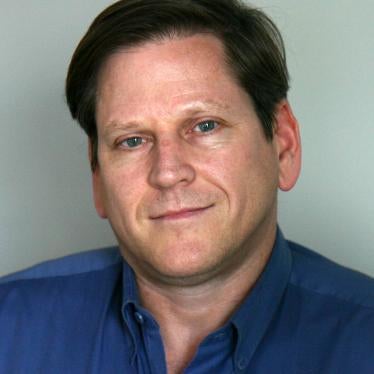When Malaysia joined the United Nations' Human Rights Council in Geneva, it pledged to "promote greater coherence" between the council's human rights goals and the rest of the UN's work.
Malaysia also said it would use its position on the council to promote economic, social and cultural rights. An upcoming meeting in Paris offers a test of those commitments.
The Executive Board of the United Nations Educational, Scientific and Cultural Organisation (Unesco), of which Malaysia is a member, will meet on June 15. At that meeting, Malaysia should speak out against awarding a prize financed by and named after the longtime dictator of Equatorial Guinea.
Unless Malaysia and other like-minded states take a firm stand against the prize - the Unesco-Obiang Nguema Mbasogo International Prize for Research in the Life Sciences - Unesco will proceed with a plan to schedule the award ceremony in the coming weeks. This prize, and the corrupt leader behind it, contradict the principles that Unesco - and the UN more generally - are supposed to stand for.
Unesco's Executive Board created the award in 2008 following an offer of a US$3 million endowment from Obiang, ostensibly to recognise "scientific achievements that improve the quality of human life". But widespread international objections to the award's connection with Obiang have delayed Unesco action. And with good reason.
The 30-odd years that Obiang has ruled Equatorial Guinea have been marked by rampant human rights abuse. Arbitrary detention, torture, and severe restrictions on free expression top the list of civil and political abuses.
These abuses were thoroughly documented and denounced when Equatorial Guinea's record was reviewed by the Human Rights Council in December 2009.
While Obiang creates international awards to build up his reputation, the citizens of Equatorial Guinea have seen little improvement in their quality of life and economic development, despite an oil boom that has raised the country's GDP by more than 5,000 percent in recent years.
Wealth built with corruption
Economic rights fare no better amid the rampant corruption that enriches the president and his family at the expense of the population. Transparency International lists the country among the 12 most corrupt in the world. Per capita GDP of over US$30,000 makes Equatorial Guinea the wealthiest country in sub-Saharan Africa, yet more than 75 percent of the population live in poverty and life expectancy has only reached 52 years.
Malaysia's per capita GDP is less than half that amount, yet its life expectancy exceeds 75 years. Malaysia's under-5 mortality ranking is a fraction of Equatorial Guinea's, which is the highest in the world.
Unlike in most countries, child mortality and primary school enrollment rates have grown worse in Equatorial Guinea over the past decade. Its children suffer under miserable conditions, even as President Obiang and his family have become incredibly wealthy from the nation's oil proceeds.
Although some governments might say that they do not want to offend others or interfere in a country's internal affairs, awarding this prize involves more than the reputation of only one country. We are talking about Unesco, a UN agency that celebrates freedom of expression and learning in its human rights mandate.
Awarding a prize named after a dictator who blatantly ignores international human rights standards, muzzles the media and peaceful political opponents, and impoverishes his people, sends the wrong message.
Malaysia can improve the work of the UN bodies on which it is has the distinction to serve and promote economic rights. It should not allow Unesco to devalue the UN's reputation and international standards. Instead, it should act to block the Unesco-Obiang prize and help ensure that the funds go to where they should have gone in the first place - for the basic education and welfare of the country's children.
Phil Robertson is deputy director of the Asia division at Human Rights Watch.







